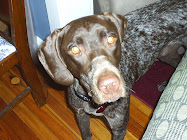
REPOST FROM A FEW YEARS AGO, IN HONOR OF SIR DAVID LEAN'S BIRTHDAY
Greatest movie of all time, and here's a bunch of reasons why. Most of this has been taken from either IMDb or Wiki:
1) Almost all movement in the film goes from left to right. David Lean said he did this to emphasize that the film was a journey. (See Star Wars Episode II: Attack of the Clones, and you will notice that the "good guys" at the end of the film are moving from right to left when attacking the Separatist army. This was done purposely.)
2) They named a lens after David Lean because they figured out a way to film a close-up of a mirage for this movie. To film Omar Sharif's entrance through a mirage, Freddie Young used a special 482mm lens from Panavision. Panavision still has this lens, and it is known among cinematographers as the "David Lean lens." Check out the scene HERE.
3) During an appearance on "The Tonight Show Starring Johnny Carson" (1962) in the 1970s, Peter O'Toole was describing just how long the movie took to make by referring to the scene when Lawrence and Gen. Allenby, after their meeting, continue talking while walking down a staircase. According to O'Toole, part of the scene had to be reshot much later, "so in the final print, when I get to the bottom of the stairs, I'm a year older than I was when I started walking down them."
4) The rescue of Gasim from the Nefu Desert, followed shortly by the greatest line of all time: "Nothing is written."
5) Shooting began on 15 May, 1961 and ended on 20 October, 1962.
6) The use of the locations in Almería, Spain for the train sequences and others made that region popular with international film makers. Most famously, it became the setting of virtually all of the Spaghetti Westerns of the '60s and '70s, specifically those of Sergio Leone. (Watch The Good, The Bad, and The Ugly for the scene where Tuco forces Blondie to walk through the desert.)
7) Steven Spielberg considers this his favorite movie of all time, and the one which convinced him to become a film maker.
8) Screenwriter William Monahan, who scripted Kingdom of Heaven and The Departed is a fan of Robert Bolt and has stated on numerous occasions that viewing Lawrence is what inspired him to be a screenwriter. When he was awarded the Oscar for his work on The Departed, he remarked how great it was to win with Peter O'Toole in the audience, because Lawrence of Arabia was the greatest screenplay he'd ever read.
9) Perhaps the second most famous (I myself prefer it to the one from 2001) match cut comes from Lawrence of Arabia where an edit cuts together Lawrence blowing out a match with the desert sun rising from the horizon. Director David Lean credits inspiration for the edit to the experimental French New Wave. The edit was later praised by Steven Spielberg as inspiration for his own work. Watch it HERE.
10) "Who are you?"
11) Back to Spielberg: David Lean once screened Lawrence of Arabia with Steven Spielberg. Lean gave Spielberg a "live director's commentary." Spielberg said it was one of the best moments of his life, learning from a true master. Consequently, Spielberg stated that it helped him make better pictures and that commentary directly influenced every movie he has made since.
12) It's an epic that ends on a downbeat.
13) TE Lawrence is considered by many historians to be a somewhat enigmatic figure. Instead of doing the typical Hollywood thing, the creators of the film did not give us an explanation so much as a riddle to puzzle over. Producer Sam Spiegel once explained that the purpose behind the movie was not to solve the mystery of who Lawrence of Arabia was, but rather to perpetuate it.
14) The score. RIP Maurice Jarre.
15) The raid on Aqaba.
16) "No prisoners!"
17) Though it deals with philosophy, politics, religion, World War I, and foreign policy - and deals with all these things wonderfully - the film essentially boils down to one thing: the question of personal identity.





